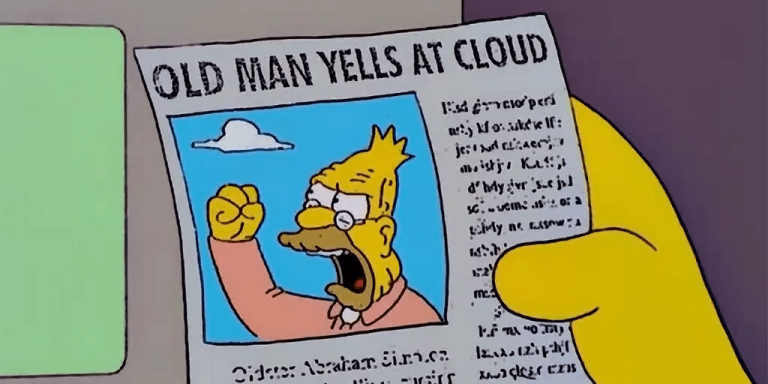President Joe Biden’s administration has announced ambitious new climate goals under the Paris Agreement, a development that feels less like real policy and more like desperate virtue signaling. According to Reuters, the goal is to reduce greenhouse gas emissions by 61% to 66% by 2035 compared to 2005 levels – a lofty goal announced just weeks before President-elect Donald Trump returns to the Oval Office , and pledged to undo much of Biden's climate agenda.
The government has promoted the move as “durable” and “achievable,” with officials touting the alleged permanence of measures contained in the Inflation Reduction Act and Infrastructure Bill. Biden's senior climate adviser John Podesta even claimed that the government's investments will “continue to pay dividends for our economy and climate for years to come.” Of course, whether these “dividends” will materialize—or whether the entire plan is more likely to drain state coffers—is another question entirely.
“The investments under this government are durable and will continue to pay dividends for our economy and climate in the years to come, allowing us to set ambitious and achievable 2035 targets,”
said John Podesta, Biden’s senior adviser for international climate policy.
Numbers don't add up
From the government's perspective, the goal is ambitious but achievable. However, independent assessments paint a less optimistic picture. According to Rhodium Group, the United States has achieved its earlier target of reducing emissions by 50%-52% by 2030. Even under current policies, the reduction is expected to be only 46% by 2035, far below this new target. Simply put, the environment the Biden administration has promised is the equivalent of a moonshot without the rockets.
Let us not forget that the Paris Agreement itself is nothing more than a grand diplomatic drama. Countries submit Nationally Determined Contributions (NDCs) based on aspirational goals, but often without reliable pathways to achieve them. If this agreement were a university group project, America would just volunteer to write the entire report while everyone else quietly has their fun.
National-Level Action: A Patchwork of Activism
The administration insists that even if Trump undermines federal climate policy — as he has all but promised to do — states will pick up the slack. California, New York and other reliably left-leaning states are part of a coalition that has pledged to align with the goals of the Paris Agreement. But this patchwork approach is fraught with inefficiencies, contradictions and regional resistance. States like Texas and Wyoming are unlikely to adhere to a policy framework that unduly punishes their economies while prioritizing the whims of coastal elites.
Furthermore, given the uneven implementation mechanisms and the vast differences in political climates, the idea that countries will work together to achieve these lofty goals is laughable. The administration essentially wants states to voluntarily enforce mandates that the federal government has waived, a strategy as coherent as hoping cats will organize into an orchestra.
Trump’s plan: Fossil fuels and energy dominance
Enter Donald Trump, who campaigned on “energy dominance.” His transition team is reportedly planning steps to reduce support for electric vehicles, impose tariffs on battery materials and increase fossil fuel production. These policies stand in stark contrast to Biden's approach, which prioritizes economic pragmatism over ideological purity.
Love him or hate him, Trump's energy policies resonate with a large segment of the electorate, especially in energy-producing states. For these voters, Biden’s climate goals are not only unachievable but also deeply harmful — sacrificing American jobs and energy independence on the altar of globalist climate orthodoxy.
Global context: America overpromises, others underperform
Even if Biden’s climate plan is not axed, there are questions about the wisdom of making ambitious promises in a global framework where compliance is also spotty. So far, only the United Arab Emirates and Brazil have announced new NDCs ahead of the February deadline. Meanwhile, major emitters like China and India continue to expand coal-fired power plants while delivering sanctimonious speeches about climate justice.
This is the fatal flaw of the Paris Agreement: It requires Western countries to restrict their own economies while letting developing countries off the hook. Biden's new climate goals effectively signal to the world that the United States is willing to bear the brunt of reducing emissions while other countries free ride.
Virtue signaling meets political reality
Let’s not beat around the bush—this new goal is not a serious policy proposal; This is political drama. The Biden administration is well aware that Trump could withdraw the United States from the Paris Agreement again, rendering that goal meaningless. But in the final days of Biden’s presidency, the administration appears more interested in leaving a symbolic legacy than developing policies that will survive the next administration.
The symbolic gesture, while satisfying to climate activists, won't keep the lights on. Biden’s climate policies have already led to rising energy costs, supply chain disruptions and an erosion of the U.S. industrial base. The idea that these same policies will now take us into some renewable energy utopia is magical thinking that belongs in fantasy fiction rather than government policy.
Conclusion: The Legacy of Arrogance
In announcing this new climate goal, the Biden administration provided a masterclass in virtue signaling: a bold promise without teeth, based on unreliable assumptions and destined to collapse under the weight of political and economic realities. It was one last act of defiance before Trump took office and charted a completely different course.
The Biden team may believe their efforts will last, but the reality is clear: Trump’s policies, grounded in economic realism and energy pragmatism, will quickly dismantle this house of cards. The rest of us better buckle up—2025 is going to be a wild ride.
H/T Steve Milloy
Relevant
Learn more from Watts Up With That?
Subscribe to have the latest posts delivered to your email.
